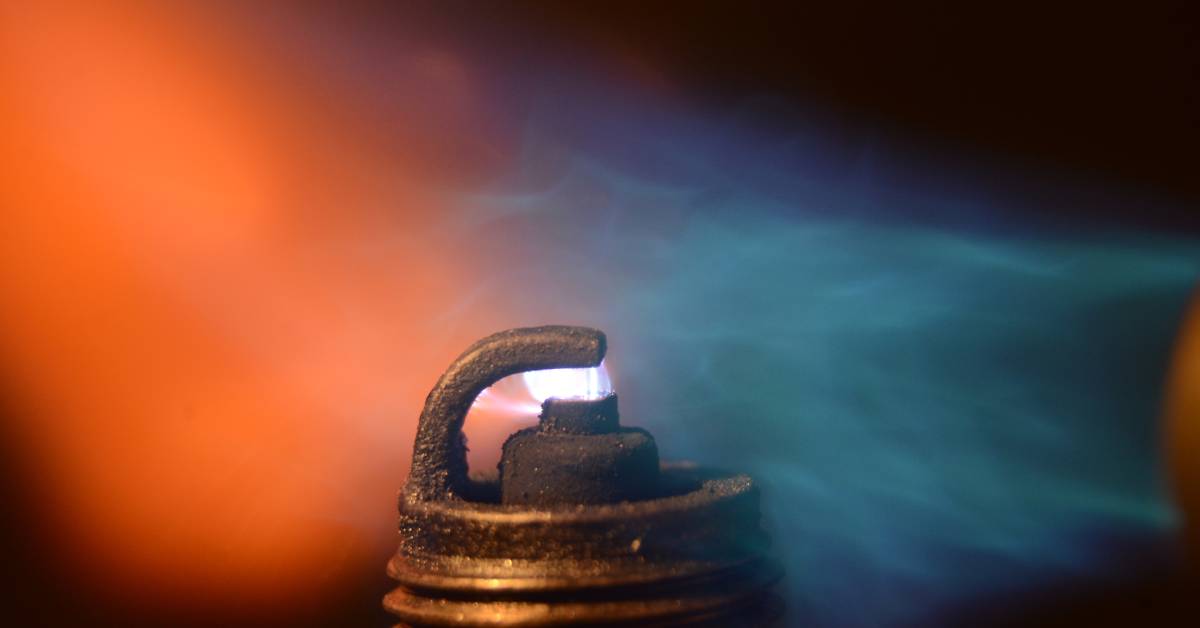
Ensuring optimal engine performance and longevity is crucial for any vehicle owner, whether you’re operating a car, motorcycle, ATV, or another vehicle that employs an internal combustion engine. One often overlooked aspect of engine maintenance is the spark plug. Keep reading to learn how spark plug selection can prevent damage to your vehicle’s engine.
The Role of Spark Plugs in the Engine
Spark plugs are integral components in internal combustion engines, catalyzing the ignition process. Their primary function is to deliver an electric spark that ignites the air-fuel mixture within the engine's cylinders. This ignition initiates a controlled explosion, driving the pistons downward and generating the power needed to propel the vehicle.
The efficiency of this process is directly tied to the condition and specifications of the spark plugs. Properly functioning spark plugs ensure consistent ignition, optimal combustion, and maximized fuel efficiency, while worn plugs lead to misfires, reduced power output, and increased emissions. This is true for spark plugs in any engine, whether they be automotive or motorbike spark plugs or those used in a host of other modern transportation equipment.

How the Right Spark Plugs Protect the Engine
Prevent Engine Misfires
Misfires occur when the air-fuel mixture in the engine's cylinders fails to ignite at the right time, leading to inefficient combustion and a significant loss of power. The right spark plugs mitigate this risk by ensuring that the ignition process occurs with precise timing and intensity. High-quality spark plugs have the correct heat range, electrode material, and gap setting tailored to the specific engine's requirements.
These settings ensure reliable ignition under various operating conditions, reducing the likelihood of misfires. Moreover, advanced spark plug technologies, such as iridium or platinum tips, offer superior durability and a more consistent spark over time, further safeguarding the engine from the detrimental effects of misfires.
Better Engine Performance
Upgrading to the right spark plugs can lead to noticeable improvements in engine performance. High-performance spark plugs create a stronger, more consistent spark, which translates to more efficient combustion. This efficiency boost results in smoother engine operation, quicker throttle response, and increased power output.
Optimized spark plug design helps maintain the engine's ideal air-fuel ratio, thus enhancing fuel economy. By reducing engine knock and delivering a more stable ignition process, the right spark plugs also contribute to lower exhaust emissions. Overall, selecting the appropriate spark plugs for the vehicle's specifications ensures that the engine operates at its peak potential.
Improved Fuel Economy
Improving fuel economy is a benefit of choosing the right spark plugs for your engine. Spark plugs with the correct specifications and advanced materials, such as iridium or platinum, can ensure optimal combustion by providing a more reliable and powerful spark. This enhanced ignition efficiency means that the air-fuel mixture burns more completely, reducing waste and allowing the engine to extract maximum energy from each drop of fuel.
A well-optimized combustion process minimizes the occurrence of unburnt fuel, which is not only wasteful but also contributes to higher emissions. By maintaining the engine's efficiency, the right spark plugs support better mileage and a lower environmental impact, making them a critical component in achieving superior fuel economy. A more efficient system means your engine doesn’t have to work harder and will last longer.
Factors To Consider When Selecting Spark Plugs
We’ve explained how spark plug selection can prevent engine damage, but how do vehicle owners know which spark plugs to choose? The primary factors in spark plug selection should be the heat range, electrode material, engine type, and driving conditions.

Heat Range
The heat range of a spark plug is a crucial factor that affects engine performance and longevity. It refers to the plug's thermal characteristics—namely, its ability to dissipate heat from the combustion chamber. A spark plug that is too hot will retain excessive heat, which can lead to pre-ignition and engine knocking, potentially damaging engine components.
Conversely, a spark plug that is too cold may not reach the self-cleaning temperature, leading to carbon fouling and reduced engine efficiency. Therefore, selecting a spark plug with the appropriate heat range for your specific engine is essential. Auto manufacturers typically recommend a specific heat range based on the engine's design and operating conditions.
Electrode Material
The material used for the electrodes in spark plugs significantly influences their performance and durability. Common electrode materials include copper, platinum, and iridium, each offering distinct advantages. Copper spark plugs are known for their excellent thermal conductivity, which helps dissipate heat efficiently, making them ideal for high-performance or older vehicles.
Platinum spark plugs offer improved longevity and consistent performance under a broader range of conditions due to their higher resistance to erosion and fouling. Iridium spark plugs represent the pinnacle of spark plug technology, providing superior durability and the best ignition performance.
Engine Type
Different engines, whether naturally aspirated, turbocharged, or supercharged, impose varying demands on spark plug performance. For instance, high-compression engines, common in performance and racing vehicles, generate more heat and pressure, requiring spark plugs with a higher heat range and more durable materials like iridium. Naturally aspirated engines may operate effectively with standard copper or platinum spark plugs.
The engine's configuration (inline, V-type, boxer, etc.) can also influence the accessibility and ease of spark plug maintenance and replacement. Manufacturer recommendations provide a solid foundation for selecting the appropriate spark plugs; however, understanding the unique characteristics and demands of your engine type ensures tailored performance enhancements and reliable engine operation.
Driving Conditions
Drivers must also choose spark plugs based on their vehicle’s driving conditions. For example, vehicles frequently operated in urban areas with stop-and-go traffic require spark plugs that can handle the stress of constant engine starts and stops, which may lead to increased fouling. Conversely, long-distance highway driving benefits from spark plugs optimized for sustained high engine speeds and temperatures, which necessitates optimal heat range and durability.
Off-road or severe weather conditions impose additional demands, requiring spark plugs with enhanced resistance to dirt, moisture, and temperature fluctuations. By evaluating the typical driving conditions your vehicle encounters, you can select spark plugs that maintain optimal performance, reliability, and longevity.
Tips for Maintaining and Monitoring Spark Plug Health
Once you’ve chosen your vehicle’s spark plugs, it’s up to you to conduct maintenance and inspections to ensure their longevity. Inspect/replace your spark plugs about every 30,000 miles. Look for signs of wear or damage, such as carbon buildup, oil fouling, or worn electrodes.
Cleaning your spark plugs can also improve performance. Use a wire brush or spark plug cleaner to remove deposits. If the plugs are heavily fouled or damaged, replacement is the best option.
Find High-Quality Spark Plugs at E3 Spark Plugs
We hope our guide has opened your eyes to the importance of the right spark plugs for your engine and how new plugs can dynamically change your vehicle’s engine output. If you think your car, motorcycle, four-wheeler, or other internal combustion vehicle could use a spark plug upgrade, consult the experts at E3 Spark Plugs!
Our wide selection of high-quality spark plugs promises performance, efficiency, and longevity thanks to their open-ground electrode design. Browse our inventory or contact our staff to learn more about our spark plugs today!







